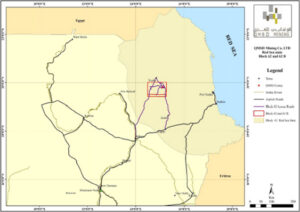Exploration Companies in Sudan
Mining and exploration companies in Sudan are not new to the country. The country’s mining boom has attracted many young people who saw potential in academic knowledge. Often, these young people had no prior experience in the mining industry, and they invested their money in small groups, with small sums of money. However, some ventured into mining with the help of foreign companies, who were often the main source of funds. The foreign partner helped keep the day-to-day operations of the project running smoothly.
While the government had set up the Sudanese Mineral Resources Company (SMRC), this agency had been given special status, which exempted it from the burdens of public law. The company’s employees were engineers from top universities, and its conduct reflected the Islamist vision of development. Yet, the company’s management and operations were not free of corruption and repression. Some of its employees have been arrested and have faced house arrest, while others have suffered from intimidation.
The mining industry in Sudan has benefited greatly from the international presence of Canadian companies. Despite their presence, the Sudanese government’s involvement would have reduced the benefits of the industry for the local population. While these concerns are valid, these issues do not mean that Canadian companies should avoid Sudan, but they should consider all aspects of the mining and exploration business. They should consider the country’s environmental and social standards in addition to the legal framework.
The case study addresses a gap in the scientific analysis of these companies’ operations in Sudan. This gap corresponds to the limited focus on Sudanese politics among the companies involved. It also addresses the question of corporate responsibility in the conflict zones. By examining the activities of the Sudanese government, the case study offers a critical perspective on the role of foreign companies in the country’s mining and exploration industries. They will highlight the risks and benefits of mining in Sudan.

Mining and Exploration Companies in Sudan
AMC is a case in point. The company began operations in the 1970s. Before the recent gold rush, the only industrial gold mine in Sudan was owned by the AMC. The SDTF was active in targeting AMC operations. Communication processes between the company and the government typically took place on separate instances. Rare intertextual references were made. In addition, the companies’ activities were subject to a range of political and social pressures.
Sudanese exploration companies
Despite these risks, the country’s mining and exploration industry is seeing growth. The Khartoum regime is restructuring its mining sector to fill the empty coffers of the Central Bank. Its new strategy involves encouraging industrial development and reorganizing the gold trade sector. In addition to the new rules, Khartoum’s new organization also wants to become the ultimate purchaser of the gold produced through the refinery. Its goal is to become a global player and unique vendor in the gold trade.
mining and exploration companies in Sudan
As the country begins to reform the mining industry, it will be vital to ensure that there is no more exploitation. Despite this, there is still a weak regulatory framework that makes the country susceptible to exploitation. The daughter of President Salva Kiir and the son of his former vice president James Wani Igga is listed as a shareholder in a company with three active mining licenses. The company’s head, Ashraf Seed Ahmed Hussein Ali, was placed under Global Magnitsky sanctions in October 2019.



Recent Comments